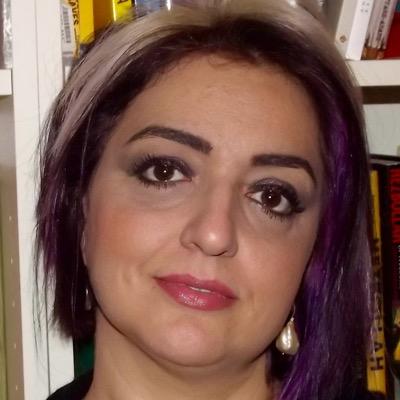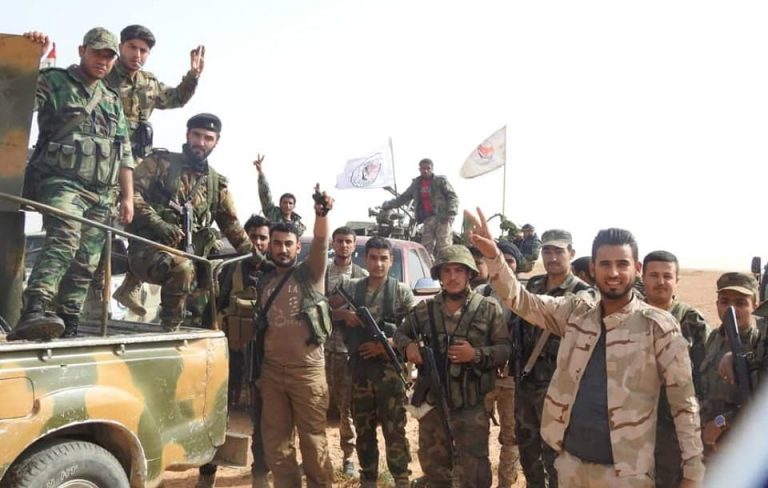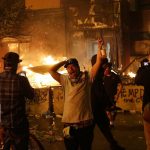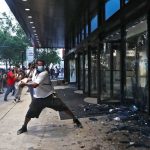The latest Israeli attacks on Syria on May 4 targeted the Mayadin area in the governorate of Deir el Zor where there is a greater movement by pro-Iranian militias and Pasdarans. The day after the Israeli State defense sources said Tehran is withdrawing from Syria by closing its military bases in the country. The news actually did nothing but increasing the questions regarding a complex situation, where many actors are involved. Is it really true that Iran is withdrawing from one of the key areas for its national interest and where it has most contributed since the beginning of the civil war in terms of men, economic and military resources?
For months, Assad has enjoyed the reopening of relations with many Arab League countries that have supported rebels for years. In addition to the support of Egypt since ever, Abu Dhabi reopened its diplomatic headquarters in the capital on December 27, 2019, followed by Bahrain. Assad needs investments for reconstruction, investments that only the Arab countries and the West can pay, unlike his current allies Iran and Russia who would like to reap the benefits of their spending in Syria. It is precisely in the key to the opening of the games of reconstruction where the dynamics on the Iranian presence and even on the stay in power of Bashar al Assad after the presidential elections of 2021 are inserted. Saudi Arabia, the United States, and of course Israel want Iran out of the country, the Emirates would like to weaken the Idlib rebel forces supported by Ankara by financing not only for reconstruction but also the militias loyal to the Syrian government. Russia itself would not mind being the main actor in the reconstruction contracts but it will have to act as the main actor capable of maintaining stability, including supporting the truce signed with Ankara and probably letting Iran take part of the slice of the reconstruction business based on the strong relationship between Assad and Tehran.
Certainly, Iran is in a weak position right now: US sanctions, the killing of Qassam Soleimani, the impact of the coronavirus, and the drop in oil prices have been a mix to which are added the attacks by Israel to their bases in Syria. The vulnerability is further understood by the request that Iran himself made to the International Monetary Fund (IMF) of 5 billiards of dollars, which never happened before in the history of IRI, both in the turn that the government had to take in Lebanon where Hezbollah itself had to accept the loan from the IMF, and in the election of a not exactly pro-Iranian premier in Iraq. A further sign of the internal rifts comes from an interview by Heshmatollah Falahatpisheh, a member of the Majlis National Security and Foreign Policy Committee, where he declares that IRI may have invested up to $ 30 billion to support Syrian President Bashar al-Assad.

The landscape is complicated, complex, and confusing. In Lebanon, Hezbollah is experiencing major difficulties in its Shiite base related to war expenses. Hence the control of the black money exchange, the control routes with Syria, and other kinds of illicit traffics. But in spite of everything it maintains control through its allies over most of the Lebanese government and parliament. In Iraq, protests that only the pandemic curbed have been a clear sign of popular anger, more Shiite, even against the Iranian imperial appetite. The same pro-Iranian militias as al-Fateh or the Popular Mobilization Forces (PMF) have begun to have internal disagreements. The new ICGR commander, Esmail Ghaani, does not have the same weight and ability as Qassam Soleimani in Iraqi politics. This is why Mohammad Kawtharani, one of the representatives of Lebanese Hezbollah, with dual Iraqi and Lebanese citizenship, took the place of Soleimani. To make us understand the importance that the character can have, it is sufficient to see that in April, the Trump administration offered $ 10 million for information on Kawtharani. The Iranian regime is resorting to new tactics in Iraq also forming new and unknown groups such as the “League of Revolutionaries”. On the political front after three rejections to the Prime Minister candidates, Iran had to accept the choice of Mustafa al-Kadhimi, who had previously been head of the National Intelligence Service and is relatively independent of Iran. But the tug of war between Tehran and Washington now shifts to the choice of two key ministers: that of oil and foreign affairs.

In Syria, Russia in agreement with Israel has allowed Israel’s attacks on pro-Iranian militia bases and Hezbollah, but it would seem that in the face of US requests to be able to expel them from Syria in exchange for funding for the reconstruction the Russian response limited itself to claiming that it had expelled Iran-backed forces 60 miles from the Israeli border. Probably knowing that it is not so easy to completely break the Iran-Assad alliance that it is not only military (indeed the ideological and political aspect exceeds the military one) and where Iran has built its own infrastructure over the course of tens of years.
The epidemic and the collapse of the oil price have only increased Tehran’s competition with Moscow and Israel’s operations in deterring Iran. Russian propaganda through its media emphasized a Russian confrontation with Bashar Al-Assad and at the same time voiced strong criticism of the Syrian government, economic-political corruption, and the urgent need for reform ahead of the presidential election in 2021. The will of Moscow is certainly not the democracy and transparency of the Syrian government, but a Syrian government, with or without Bashar, that is able to compromise even with the rebel factions by accepting political reconciliation towards a new constitution.
While for Iran the goal changes. For the IRI, Bashar al Assad is a necessity for the existence of his military, political, and ideological machine in Syria. Syria is the way to Lebanon as a deterrence, it is the defense of the national interest. The country’s compromise and political reconciliation are not on the list of its demands. Militarily although there has been a reduction in the Pasdaran present in Syria, Iran continues to have a strong presence of Lebanese Hezbollah, the Afghan Fatemiyoun Division, the Pakistani Zainab Brigades and new pro-Shiite militias that it follows to recruit. Meanwhile, Tehran continues to provide support. In March alone, Iran shipped nearly 8 million barrels of crude oil to Syria and Iranian Foreign Minister Zarif’s visit to Damascus in April served to further trade contracts between the two countries.
It is not entirely clear whether Assad’s feud with his maternal cousin, Rami Makhlouf could have anything to do with the rivalry between Russia and Iran in Syria, but Makhlouf highlights the pressure the Syrian regime is undergoing. Iran has had close ties to Rami Makhlouf since the beginning of the conflict, working closely with the “Al-Bustan” group, Makhlouf’s charity. Since 2011, “Al Bustan” has funded 20 000 Alawite pro-government militias. On the other hand, Maher, Bashar’s brother at the head of the elite armored 4th Division is trying to incorporate the forces of the “Al Bustan” militia into the 4th Division with the assistance of the IRGC. Moscow meanwhile last year ordered the Syrian authorities to investigate Maher Assad’s right-hand man for his involvement in the drug business. This year, several drug shipments from Syria were seized within a few months. In January in Dubai, they seized several loads of amphetamine pills; in April 4 tons of hashish packed in 19,000 individual Tetra Paks by the Milkman company, which belongs to Makhlouf, were discovered on a ship in the Egyptian port of Said. In late April in Saudi Arabia, customs officials found 45 million Captagon pills, probably made by Syrian laboratories. Almost all loads of amphetamine leaving the port of Latakia belong to companies related to Maher Assad.

In such a context where the dances are not done by two, nor alone we should see what will happen in Iran. Khamenei is 80 years old. The various souls of IRCG over the years have become powerful, rich, greedy, and corrupt. Khamenei’s first choice will likely be his son, Mojtaba, a religious from Tehran. It is clear although to almost all observers that the role of IRCGs will be fundamental in choosing the leader. Whether more or less conservative, that will depend on other factors. Surely if, how and when Iran will withdraw from Syria remains a big question mark. The investment has been huge on all fronts, the importance is even greater and Iran would come out of it humiliated.

Author
-

Researcher on International Relations Middle East and Balkans
View all posts
CSSII- Centro Interdipartimentale di Studi Strategici, Internazionali e Imprenditoriali,
Università di Firenze, Italy, Albania




